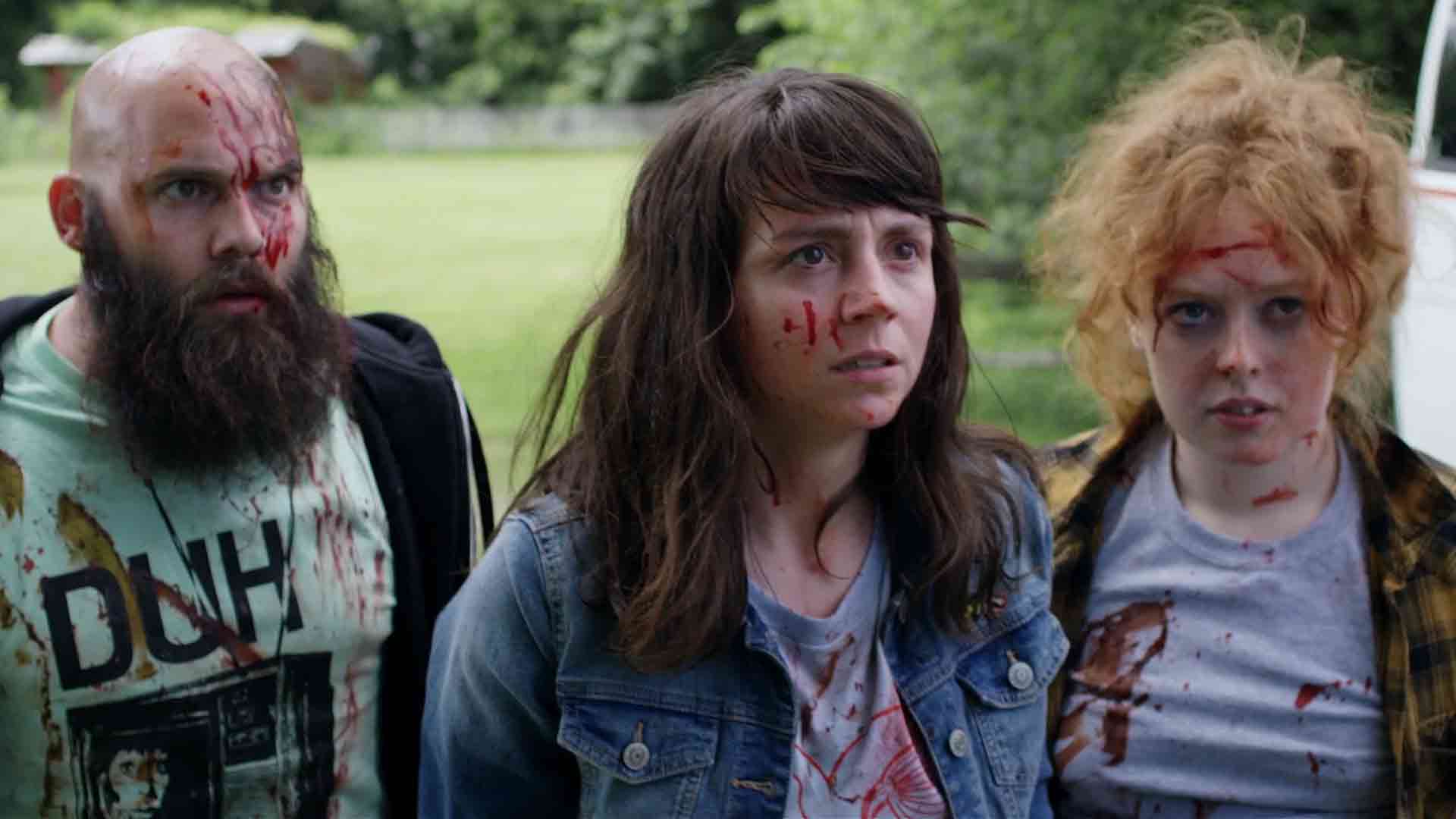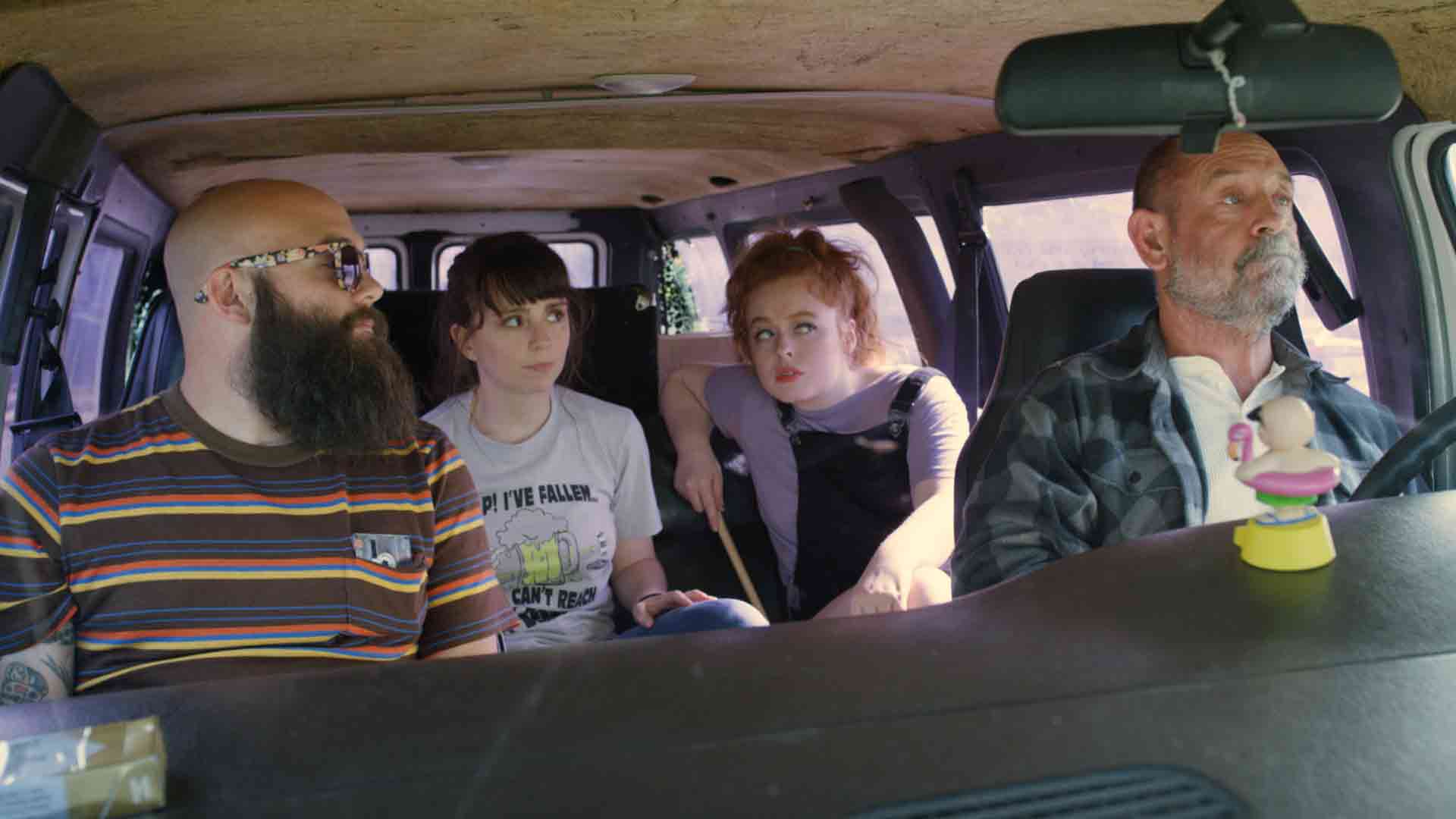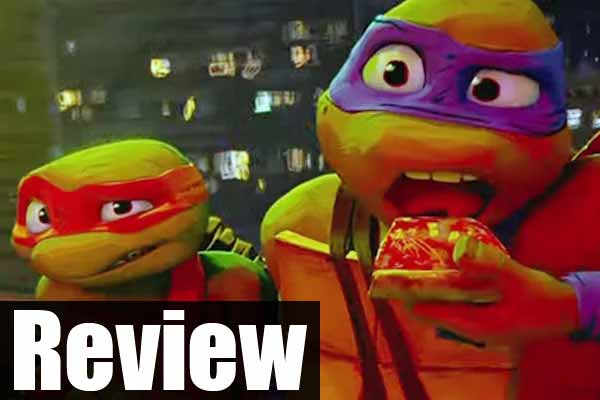Uncle Peckerhead Interview
Interview with Matthew John Lawrence, Director/Writer on Uncle Peckerhead
For phone based interviews we try to present the conversation replies as close to verbatim as possible.
A staple I do in all interviews in order to start things off is to ask that you elaborate a bit about your work, and this particular film for those not familiar with it?
Matthew: My name is Matt, writer/director. I go by the name Matthew John Lawrence. I guess when it comes to my body of work I generally focus in on comedic and surreal narratives. In particular, the past few years I’ve really focused in on horror comedies. I think in terms of my interests, they’re a little bit broader in regards to the types of stories I want to tell.
With this film, Uncle Peckerhead as I’ve mentioned is a horror comedy and there’s a lot of music involved because it centers around a three piece punk band on their first tour with a man eating monster as a roadie. I have a really deep love for music, specifically live music. I’ve played in bands my entire life. So that’s the type of stuff that interests me, and the type of stuff I gravitate towards.
I’m very curious about the origin of the film’s title, Uncle Peckerhead. Is there a fun story behind the name?
Matthew: Yes, I don’t know if it’s fun. There is a reason why we decided to call it Uncle Peckerhead. Peckerhead comes from the name of the man eating monster roadie. When it came to the title of calling it Uncle Peckerhead this is what happened, when I started writing the script. It was a year or two after Trump had been elected into office. The New York Times and a bunch of other newspapers started publishing these editorials on how, and who voted for Trump and how this came to be.
One of the main theories was these blue collar, older male voters kind of turned to Trump because they felt that the new world had left them behind. Likened them to your uncle at Thanksgiving Dinner who might be this charming person, that’s willing to go for a candidate that’s going to kind of break everything and burn it all down because they felt like they had been left behind. I felt this was kind of Peckerhead, this older guy that felt like he been left out. So he decides that he’s got to take this nihilistic approach and kind of burn it all down figuratively speaking of course and that’s how we got the name.

Could you tell us a bit about the narrative and where the main characters find themselves at the start of the film?
Matthew: The main narrative centers around this three piece punk band DUH, and it’s led by Judy who is kind of like the mom of the group. DUH in itself kind of resembles the 21st century family in that you have a single mom who is Judy, the angsty teenage daughter who’s the drummer Mel.
Then you have the precarious or kind hearted little son Max. This kind of weird family, and Judy has this dream that they’re going to be able to forge this career as a touring punk band but right now they’re a DIY low functioning operation.
They’re about to embark on their first tour, they have their van re-possessed and they need a vehicle to embark on this tour. That’s where Peckhead comes in and he’s this kind of hillbilly, or redneck kind of shit kicking older dude that has a van and seems to be well and able to drive them around on tour. Sort of act as their roadie, and he’s got this dark secret and this is where the film kicks into gear.
This is definitely a horror focused film, but it has a good amount of comedy to it. What was it like to balance these elements?
Matthew: I’m so happy that it feels like people see that there’s a balance, that I’m really grateful for. I would say in terms of balance, I didn’t want to make a film in terms of the horror elements where the horror elements are incredibly grim. Or sad, or dark. Not that those films aren’t great, but I wanted it to have more of a cartoonish approach to even the horror elements.
The film if it does work; and it contrasts between the comedy and horror elements seamlessly, so that when it comes to going back and forth, making sure there are these moments where there’s levity even when it seems dark or dire. Even beyond the horror or comedic elements, one thing that I really aim to do, at the center of most films I really love is having heart in the movie.
In terms of the writing showing that there’s indeed care and affection for the characters you’re writing and that they have that for one another. Even if it is a lowbrow type of film, that has lots of gore and lowbrow comedic moments that there’s some kind of anchor. Some kind of depth, whether that’s with what the characters are searching for, or need or want. With the actions that they take to satisfy those needs or wants.
I thought the gore was handled very well. Could you highlight one or two of the graphics scenes and provide some context into how they were created?
Matthew: When it comes to gore, I really have to give a shout out to our effects guru Jared and his assistant Shawn. When you’re making a film like this on a microbudget, when you’re writing the script the sky is the limit and I don’t really think I can’t do this. We only have so many resources or money, you’re kind of writing and once you’re starting to budget it out you come face to face with the reality that you might not be able to do certain things. Luckily Jared, he came on board and we didn’t have to make many changes to the script and really fully embraced this with what little we gave him in terms of time and resources.
He was able to bring many of these moments in the script to life. When it comes to specific scenes, we really have four maybe five really big effects or sequences. When it comes to stuff like that without giving away a spoiler and I’ll just kind of talk about the film aspect. It was all practical effects and make-up and we’re not relying on any computer generated post production work. Those are all in camera while we were shooting during principal photography.
So for example, working on a microbudget you have for example someone gets their jaw ripped off. You don’t have nine or ten jaws to take several takes, you have one jaw to get ripped off. If the cameras at the wrong angle or the actors don’t hit their marks you can’t use that gore, or that sequence and it goes to waste. In reality when it comes to our filmmaking, it really speaks to the amazing cast and crew we had that all the scenes we see that has that gore, those visceral moments are just one take and everyone operating at the optimum level to really execute a really nicely played out gore scene.

There’s a bit of music present in this one, what’s the process behind its inclusion and were some of the pieces original?
Matthew: The songs were original except for the last song which was originally written by the person that did the film. It was a song that exists before the film was made. As I mentioned the film centers around this three piece punk band. One of the co-vocalists and guitarists in the band Max, played by Jeff Riddle, a good friend of mine that I’ve known for ten plus years. He’s been in this band The Holy Mess and when I was writing Peckerhead I knew he would be involved and probably play Max.
This song that Jeff had written called Trash Age with his old band I knew was a perfect ending to the film in terms of lyrics and the tone. I really think it wrapped up Peckerhead nicely and I asked him if I could use it. He said you certainly could use it, but I would like to write a new body of work for DUH, a real record from a fake band. He went forward with writing a completely new five incredible song EP for this fake band in the movie. So when you’re listening to the music of Duh, minus that final song is all written by Jeff that played Max in the movie.
Were there any challenges behind the scenes on this production?
Matthew: A laundry list of dozens, if not hundreds. What I’ll do is broadly talk about as I’ve mentioned before this is a microbudget film. In reality you’re working with a small scale crew of ten to fifteen people aside from the crowd scenes when the band is performing. We only had the main cast of five, and supporting characters so it was a small operation. What happens when you have such a small crew, the crew is wearing several if not dozens of hats.
For example, one of our co-producers was the wardrobe, production design, designed all of the DUH’s merch and their demo tape. Our unit production manager also played Shiloh, one of the antagonists in the film from the rival band. Everyone is wearing twelve different hats and stretched really thin. Basically you’re begging, borrowing and stealing everything that you can get.
You’re calling in ever favor, you’re making a film that you want to look and feel of a certain X amount of dollars and you probably have a tenth of that. Your back goes up against the wall, everyone is working long hours and getting little complete. Everyone is being pushed to their limits and that speaks to how great the cast and crew were, so hopefully that wear doesn’t show up on screen. Everyone is still really good friends and really enjoys the craft and working with one another. Daily you’re putting out dozens, if not hundreds of fires in a microbudget film like this.
In your opinion, what aspect of the movie do you feel most makes it stand out in the crowd?
Matthew: It does stand out as in a lot of the reviews I’ve read or posts I’ve seen, they talk about the film having a lot of heart. It is this gonzo batshit movie about a group of kids on tour with a man eating ghoul. In reality it’s really centered around Judy, and how she’s sold her soul in order to get close to success. To be given a chance to be successful in the way that she defines success.
Oddball nuclear family that really kind of cares for one another and there is some emotional depth, at least I hope that shows in story. I feel horror films stray away from really having, not all, but I’m saying a lot of horror films at certain festivals over the years were missing a little bit of a light to them. The other thing that I think stands out is that the movie is really a mixed genre behind the horror comedy.
It’s a road trip movie, it’s a movie that features a lot of music. It has this component of the band playing live often in the film. I don’t think it’s easily categorized, despite us having to give it that defined genre. In terms of the genre mixing I hope it’s so much more than just a horror movie or a comedy, or a road trip movie.
Lastly I would like to leave a spot for you to say something or go over anything I might have missed during the interview?
Matthew: I just wanted to say thanks to you Jason for sitting down with me, talking about the movie. In reality, not to keep banging on the same drum it’s a microbudget film. We’re really depending on, whether it’s publications or social media spreading the word. People that watched the movie, if you enjoyed it, tell people and post about it.
That’s really the only way, we don’t have the marketing machine behind us to spread the word about Uncle Peckerhead. Beyond that, if you really liked the movie and want to hear about future projects or want to see DUH merch or hopefully some fun online screenings we’ll be a part of.
You can check out subtletrex.com which is our crew, or unclepeckerhead.com and that just redirects you. There you can find all the social media of the people involved, find out a little more about what we do and the projects we’re involved. I again wanted to thank you for sitting down and talking to me about the movie.
View our Interviews Hub
View our Movie Hubs
Read our Uncle Peckerhead Review

 Xbox
Xbox Playstation
Playstation Nintendo
Nintendo PC
PC Mobile
Mobile









